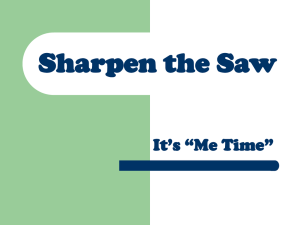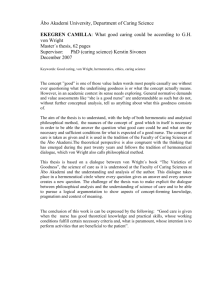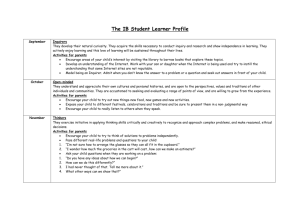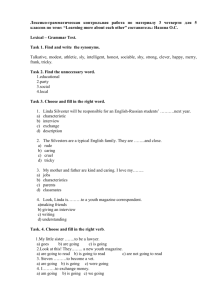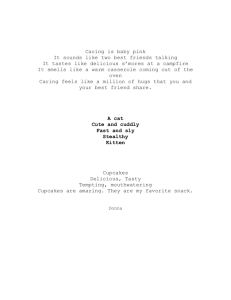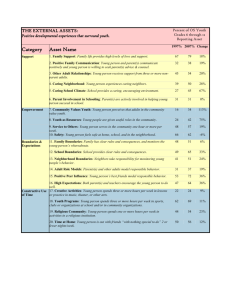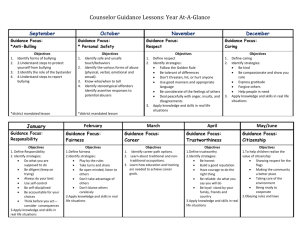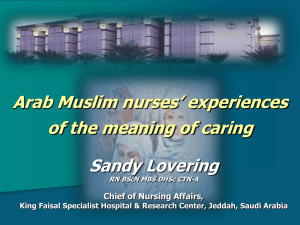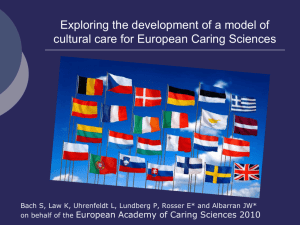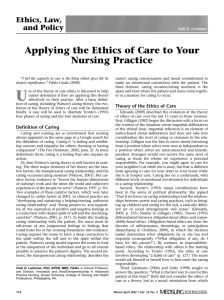ÅBO AKADEMI UNIVERSITY
advertisement
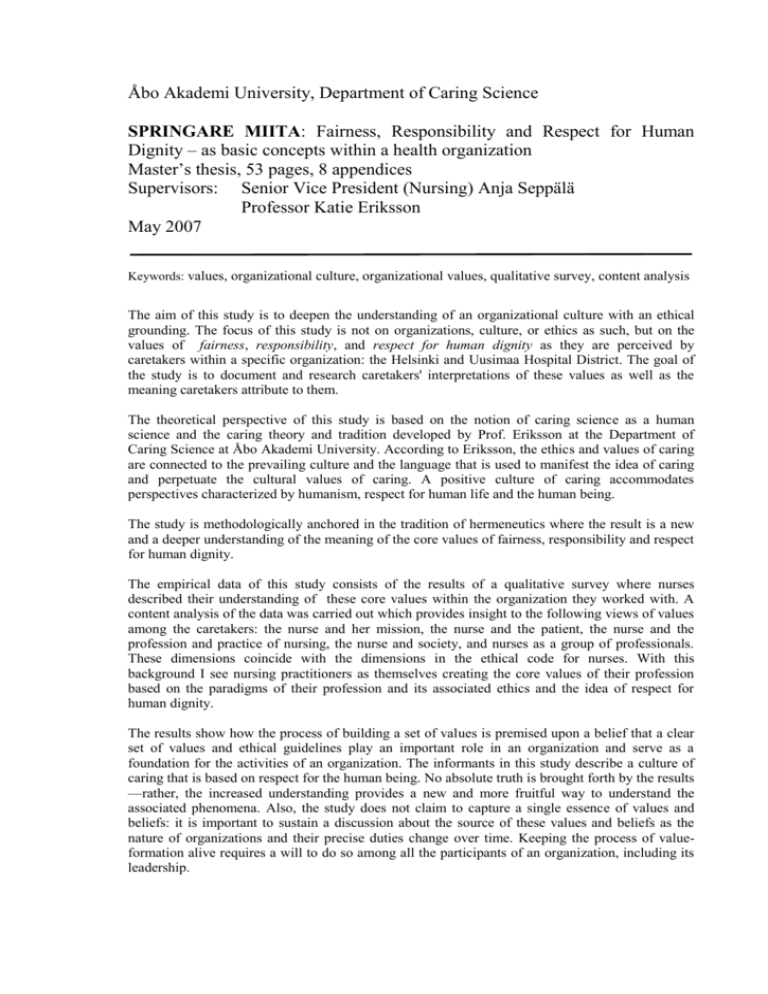
Åbo Akademi University, Department of Caring Science SPRINGARE MIITA: Fairness, Responsibility and Respect for Human Dignity – as basic concepts within a health organization Master’s thesis, 53 pages, 8 appendices Supervisors: Senior Vice President (Nursing) Anja Seppälä Professor Katie Eriksson May 2007 Keywords: values, organizational culture, organizational values, qualitative survey, content analysis The aim of this study is to deepen the understanding of an organizational culture with an ethical grounding. The focus of this study is not on organizations, culture, or ethics as such, but on the values of fairness, responsibility, and respect for human dignity as they are perceived by caretakers within a specific organization: the Helsinki and Uusimaa Hospital District. The goal of the study is to document and research caretakers' interpretations of these values as well as the meaning caretakers attribute to them. The theoretical perspective of this study is based on the notion of caring science as a human science and the caring theory and tradition developed by Prof. Eriksson at the Department of Caring Science at Åbo Akademi University. According to Eriksson, the ethics and values of caring are connected to the prevailing culture and the language that is used to manifest the idea of caring and perpetuate the cultural values of caring. A positive culture of caring accommodates perspectives characterized by humanism, respect for human life and the human being. The study is methodologically anchored in the tradition of hermeneutics where the result is a new and a deeper understanding of the meaning of the core values of fairness, responsibility and respect for human dignity. The empirical data of this study consists of the results of a qualitative survey where nurses described their understanding of these core values within the organization they worked with. A content analysis of the data was carried out which provides insight to the following views of values among the caretakers: the nurse and her mission, the nurse and the patient, the nurse and the profession and practice of nursing, the nurse and society, and nurses as a group of professionals. These dimensions coincide with the dimensions in the ethical code for nurses. With this background I see nursing practitioners as themselves creating the core values of their profession based on the paradigms of their profession and its associated ethics and the idea of respect for human dignity. The results show how the process of building a set of values is premised upon a belief that a clear set of values and ethical guidelines play an important role in an organization and serve as a foundation for the activities of an organization. The informants in this study describe a culture of caring that is based on respect for the human being. No absolute truth is brought forth by the results —rather, the increased understanding provides a new and more fruitful way to understand the associated phenomena. Also, the study does not claim to capture a single essence of values and beliefs: it is important to sustain a discussion about the source of these values and beliefs as the nature of organizations and their precise duties change over time. Keeping the process of valueformation alive requires a will to do so among all the participants of an organization, including its leadership.
